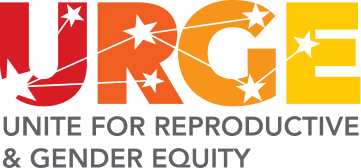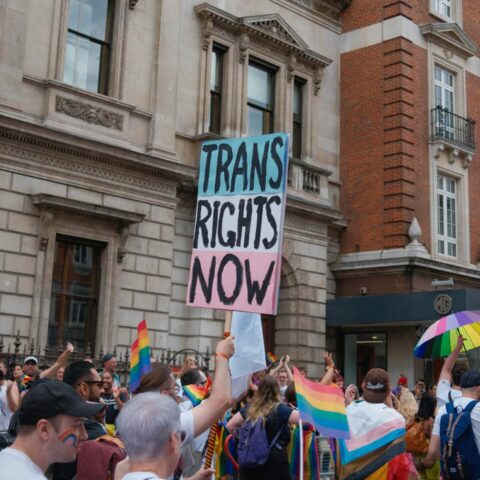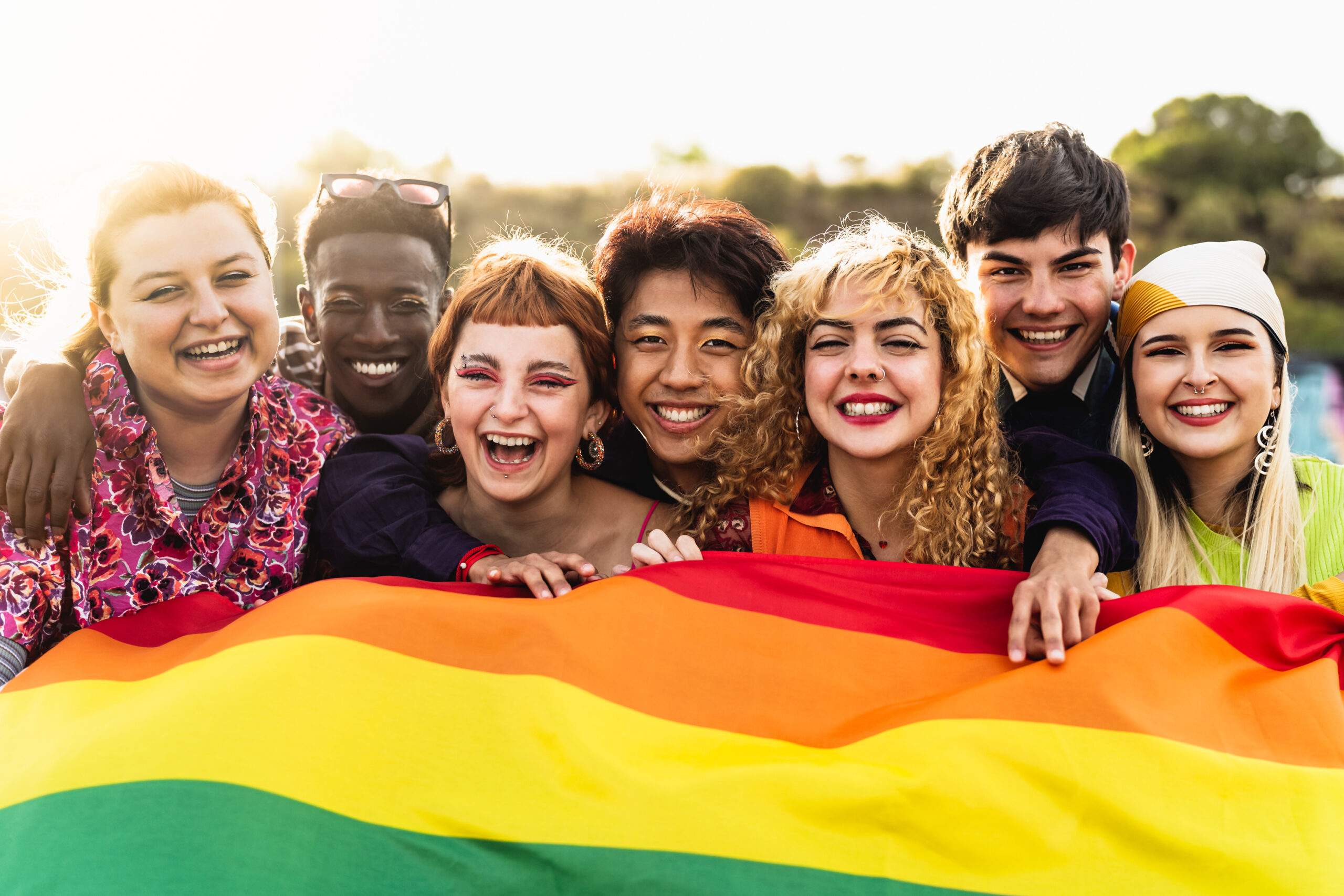What Facebook Continues To Tell Us About Violence Against Women
Cross-posted with permission from Fem2.0
**Trigger warning – This post contains strong language and graphic descriptions.**
There is a photograph being shared in Facebook of a woman cowering in a corner, eyes downcast, as large man standing in the foreground swings his fist at her head. The caption reads, “Women deserve equal rights. And lefts.”
AT&T, American Express, Cubesmart and Ancestry.com are among the page’s sponsors today.
This image has been reported to Facebook repeatedly. Their response is: “Thanks for your report. We reviewed the photo you reported, but found it doesn’t violate Facebook’s Community Standard on hate speech, which includes posts or photos that attack a person based on their race, ethnicity, national origin, religion, sex, gender, sexual orientation, disability, or medical condition.”
The “joke” isn’t offensive. What is offensive is fact that the infliction of pain on girls and women –pain inflicted because they are female – is entertaining and acceptable. As with rape humor, domestic violence humor reduces girls and women to their body parts and communicates that we are violable for other people’s purposes and entertainment. Helpless and full of shame. At the same times, this content perpetuates harmful stereotypes about what makes men “real” – violence, control, infliction of pain on others, lack of empathy, never weak or helpless. This is our culture of cruelty and domination. Its how we teach boys and girls to be. Not Facebook’s problem, I know.
But, imagine a photograph of a gay or African American man standing under a tree with noose hanging from a branch and some white guys standing nearby laughing with the caption, “Hanging out!” Because I don’t know how this is different.
A few months ago, a Facebook spokesperson explained that, “Having the freedom to debate serious issues like this is how we fight prejudice.” Maybe this images and others like it are biting social satire? An entrée into incisive debate about a controversial social problem. Here are parts of the debate (let’s call it, “When is raping, beating and brutalizing girls and women funny?”) over this image taken from more than 300 comments (photo has more than 5,000 likes).
- “I don’t care what anyone says if a woman deserves to be hit than hit her. there a difference from being a beater and slapping a bitch when she needs it. there probably wouldn’t be some many loud mouth bitches or sluts if they got slapped up when needed.and keep in mind I’m a woman saying this.
- “And same goes for a man.sometimes people need to be hit.”
- “It’s a joke. Everyone knows beating up a wife/husband is wrong.”
- “Stop with this shit Women already have more rights then men so stfu.”
- “Feminism at this point is the fat kid who wamts both cake and pie and can choose one so they cry and whine till they get both. Its to support women to the equal status as men yet they treat guys as unequal. Want to be equal then treat both sides the same.”
- “im not a girl… but they deserve = rights.. if i known that guy id kick hes ass…”
- “Equal rights are equal rights, bitches can’t be picky about what they want and don’t want for them.”
- “Not the worst thing I’ve seen on the internet. Pretty silly tho. Domestic violence happens to men too, and pretending it’s just a female problem furthers the stigma men have in speaking out against the violence they experience. So for all the guys who are like “Hyurr durr, this is funny, feminists can gtfo”, remember: you are entitled to equal rights, lefts, and up-one-side-down-the-others, too.”
- “Dont hit women. Ignore them. Its a lot worse then hitting them.”
- “You know… not all women are whores, I mean you’ve got to know that because abusing women or children is not right!”
- “You ‘feminists’ need to pull your heads out of your asses and accept that you deserve a beating if you fucking provoked it, stop acting like such victims all the fucking time.”
- “IF YOU’VE EVER BEEN IN AN ABUSIVE RELATIONSHIP and you are reading this: Don’t worry, you are not alone in believing that this is false and horrible. If Facebook had a “DISLIKE” button, there would be far more dislikes than likes. Abuse is always wrong. Demand better of yourself and others. Love, forgive, and don’t accept violent behavior in others.”
What is interesting is that rape and beating women up is controversial, normalized and “debatable,” in a way that targeted violence against other marginalized and minority groups no longer is to most “reasonable” people. That’s why I keep making the point that this isn’t about censorship or law, but about norms. Pro and anti comments were fairly equally split between self-identified male and female commenters. That’s why I keep making the point that this isn’t a battle of men versus women, but worldviews.
People are so inured to images, tv shows, movies, music, memes and advertising that use violence against women for entertainment that most people don’t even think about it as real. And while maybe 12 celebrities today can make pointed rape jokes in ways that reveal the horror of rape’s reality or the ugliness and pain of living with daily domestic violence, most people can’t. Instead, content like this usually mocks victims and glorifies abusers and violence in general. Facebook makes no such distinction. So here, as elsewhere, violence against women and girls becomes a fiction, a fantasy, something they watch as they rack up points in a game, enjoy a drink or eat dinner. This isn’t “offensive,” it’s an atrocity. While we do everything possible to hunt down two violent young men terrorizing a city, we willfully ignore the daily violence that people are subjected to in their own homes every day in acts of individual terrorism.
The only way to tear this culture down is to object to it every time you encounter it.
Facebook moderators contact authorities about real instances of violence and crime every day. As others and I have written before, “Not real” content depicting rape and the physical abuse of girls and women is often categorized by Facebook as [Humor] and frequently surfaces in the news. For example, a recent photograph of a man carrying a limp girl with the caption, “ Rohyphnol: When Traditional Dating Methods Just Aren’t Cutting it!” or the page “I Love the Rape Van.” Facebook has a detailed and thorough process for handling complaints about this sort of material and is on the record saying that it is not in the business of defining and changing culture, or interested in policing free speech. This is false. Facebook does both of these things simply through the process of reviewing and editing pages created and by having a reporting structure for complains. The company has actually been lauded for its approach in other situations.
Of course, it may simply be that objectionable pages and content appear in Facebook in proportion to the rate of their production by users. The point remains however: Facebook has terms, conditions and guidelines. By default that makes Facebook and arbiter and interpreter of norms whether it cares to be or not.
Last week I wrote a piece in the Guardian, Facebook’s Big Misogyny Problem, about what has been happening to the administrators of a page called Rapebook, and an Everyday Sexism Project initiative to raise advertisers’ awareness that their ads are showing up in Facebook on pages featuring violence against women. What happened after Rapebook perfectly illustrates why it was created in the first place.
“At first, people started posting pictures of women and young girls being raped or beat up and commenting on the page saying things like, “I will skull-fuck your children,” explains Trista Hendren, one of the page’s founding administrators, who became the target violent threats and daily graphic abuse on the site.
Within days of its creation, the site was the target of trolls, Facebook users themselves, posting crude commentary, links to violent pornography and rape, Facebook pages depicting rape, including of babies, rape “humor,” malicious software links, and rape and death threats (for example, “ fuck that. hit that hoe,” and “Domestic violence is a 2 way street you hypocritical cunt.”) Personal information was shared online. Hendren’s picture was used to create rape memes. After months of working closely with Facebook, to mixed results, Hendren stopped using Facebook and Rapebook admins have shut the page down. She is now working with the FBI. This is not about “debate.” It is about silencing. Martha Nussbaum, a philosopher and professor of law at University of Chicago, squarely identifies similar incidences as gender-based hate crimes.
As I wrote last week, a common retort to all of this is, “This is the Internet. It’s offensive. If you don’t like it, leave.” But, Facebook is NOT “the Internet.” That’s why it fascinates me – because it illustrates how norms work and how they can be challenged. Facebook has principles and community standards that create a reasonable expectation in users that it will enforce rules it itself has established in an unbiased manner.
In summary, what I said last week is this:
First, Facebook’s guidelines prohibit hate speech review process that does not recognize sex-based hate speech and its case-by-case approach cannot assess how an overall hostile environment (treating rape and violence against women literally as a joke or ignoring content that is viscerally threatening and desensitizing) is threatening, unsafe and harmful to users (male and female).
Second, girls and women, acculturated to a world where one in three women will be sexually assaulted (in the US, that number is one in five; for men, one in 77), cannot separate this reality from their online experiences. Domestic violence and homicide statistics reflect a similar epidemic. This dynamic is reflected online, where more than 75% of targeted online abuse is aimed at women. Women experience and assess safety differently from men and Facebook’s policies do not take this into account.
Third, users employing sex-based hate language and images manipulate Facebook’s system and lack of introspection regarding sexist norms. Over and over images and language reducing girls and women to their body parts, their appearances, their pornographic and rape potential are deemed not credibly harmful and threatening, when studies demonstrate repeatedly that they are. In addition, almost all of the content related to rape and domestic violence jokes features women as victims, which perpetuate rape myths and deny the reality of male victims of abuse.
Fourth, what people like Hendren are protesting is not the result of easily mocked “hurt feelings” or “offensiveness,” but systemically tolerated hate, degradation, objectification and marginalization of girls and women, behind which loiters actual violence. Minimizing their concerns (i.e. “they’re only trolls, it’s not a credible threat”) is a symptom of the very problem they are challenging. Threats provoke anxiety and change behavior – which makes them credible.
Fifth, it’s important to note that people who supported Rapebook’s efforts were unwilling to publicly show their support in Facebook, for fear of similar targeting and abuse. Hendren’s leaving Facebook, Rapebook’s closing and the hesitancy of people to support them publicly are actual losses of free speech for these users (overwhelmingly women) as the result of bullying, harassment and misogyny. Women and their male allies who are are disproportionately negatively harmed.
A new Facebook page was recently created, Sheryl Sandberg Lean-In And Remove Misogyny from FB. This page, like Rapebook, is an example of individual women doing exactly what Sandberg prescribes in her new book, Lean-In, but encountering overwhelming systemic obstacles and biased norms that prevent them from succeeding. It is not Sheryl Sandberg’s job to purge the world of misogyny or to singlehandedly equalize cultural norms being employed at Facebook. However, she is at the center of a perfect storm: In addition to being Facebook’s COO, and the author of Lean In, a corporate-power-feminist manifesto, Sandberg is on the board of VDAY. V-Day’s intent, ending violence against girls and women globally, is seriously undermined by Facebook’s unbalanced approach.
Individuals can communicate directly with Facebook by registering complaints using the Facebook option on every page, by engaging in “debate” when they encounter content that is hateful and by writing and speaking openly about these topics. Facebook, I’d like to think, is doing the same.


